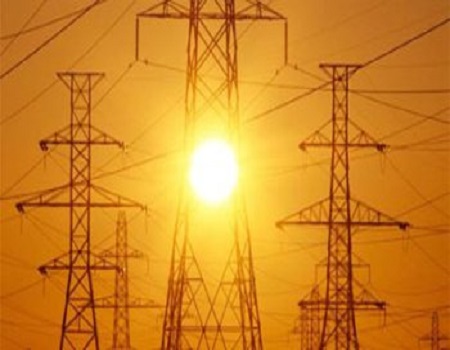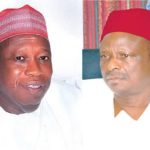Despite the fact that power supply has remained a major driver of economies globally, with stable power supply, households, businesses and industries operating efficiently and the economy thriving very well, Nigeria is suffering unremitting limitations in the power sector which has continued to its stifle growth.
The country, though, has an installed generation capacity of 13,000 megawatts (MW) of electric power from existing plants, only around 3,400 MW is being supplied to a population of about 200 million people.
This inadequate power supply and the resulting blackout is said to have ranked Nigeria as the second-worst country in electricity supply globally, thus ranking a place above Yemen, a war-torn country.
Years of government and stakeholders coming together to identify the problems within the sector led to the discovery of severe cross-sectoral bottlenecks ranging from infrastructure limitations; poor end-user pricing; poor regulatory enforcement; high aggregate technical; commercial and collection (ATC&C) losses, cash shortfalls, debts, electricity theft, and non-payment culture of the consumers.
ALSO READ: Buhari constitutes national humanitarian coordination committee
In a bid to tackle these challenges head-on, during a visit of the German Chancellor, Angela Merkel and her business delegation which included the Global President/CEO of SiemensAG, Mr Joe Kaeser, to President Buhari in 2018, the Nigerian Electrification Road Map now Presidential Power Initiative, was initiated to discuss how the German government can support Nigeria in resolving the challenges in the power sector.
After being brought on board to assess the situation in Nigeria’s power sector, Siemens alongside other stakeholders from Nigeria’s Ministry of Power, Bureau of Public Enterprise (BPE), Nigeria Electricity Regulatory Commission (NERC)), the TCN and Electricity Distribution Companies (DisCos) had discovered that the immediate priority was to close gaps in the system by enhancing the transmission and distribution segment of the Power Sector.
Following several engagements and reviews on the technical and commercial considerations for the project with representatives of the TCN, NERC, BPE, Ministry of Power and all the DisCos, the implementation agreement was signed by the President/CEO of Siemens AG, Joe Kaeser; CEO of Siemens Nigeria, OnyecheTifase; and Director General/CEO of Bureau of Public Enterprises, Alex Okoh in Abuja in the presence of President Muhammadu Buhari on July 22, 2019.
The Presidential Power Initiative is structured in three phases. While phase 1 of the project is focused on critical interventions to resolve 2,000MW of transmission and distribution constraints, to increase the system’s end-to-end operational capacity to 7,000 MW, Phase 2 will target remaining network bottlenecks to enable full use of existing generation and distribution capacities, bringing the systems operational capacity to 11,000 MWand Phase 3 will focus on achieving total operational grip capacity o25,000 MW in the long-term.
Commenting on Siemens’ role in the electrification project, the Head of Business Development, Siemens Nigeria, Oladayo Orolu said: “As a global powerhouse, Siemens is working closely with the Federal Government of Nigeria, Ministry of Power, BPE, TCNs, DisCos and other stakeholders in the sector on several individual transmission and distribution upgrade and expansion projects. Across the 3 phases of the PPI, we will be executing projects including but not limited to the upgrade of transmission and distribution substations; power system simulation and network development studies; control and protection devices, meter data management systems, and technical training of existing workforce in the sector.
“Siemens is also helping to facilitate financing for the project through the German Export Credit Agency (Euler Hermes AG), other ECA’s, and other financing Agencies. It is important to note that Siemens is not investing in DisCos and the TCN, neither will we be managing or getting involved in the operations of these companies. Beyond the technical and financial aspect of this project, our role in the initiative also involves us providing extensive technical training for employees in relevant power sector agencies.
“Since signing the Implementation Agreement in July 2019, we have held series of meetings and workshops with the TCN, Discos, NERC and BPE to align the scope of projects for phase 1. The scope of work for each Disco and the TCN is very clear including the specifications and design of our proposed equipment and systems. We are currently closing out on some open topics that will ensure successful execution of the projects.
“As a company that is in Nigeria for Nigeria, we understand that the potential impact of the project cannot be overemphasized. We are confident of the gain that this project will bring to improve the economy as a whole and the quality of life of Nigerians. Since 1970, Siemens has been actively supporting public and private investors for the development of the energy sector of Nigeria. Our footprints in power generation, electrification, oil and gas services, industry automation and technical training underscore our philosophy of delivering business to society,” he added.
WATCH TOP VIDEOS FROM NIGERIAN TRIBUNE TV
- Let’s Talk About SELF-AWARENESS
- Is Your Confidence Mistaken for Pride? Let’s talk about it
- Is Etiquette About Perfection…Or Just Not Being Rude?
- Top Psychologist Reveal 3 Signs You’re Struggling With Imposter Syndrome
- Do You Pick Up Work-Related Calls at Midnight or Never? Let’s Talk About Boundaries







